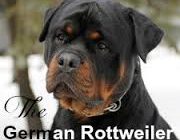Looking for common German names? Learn more about the common German names popular in different countries…
Around 1000 AD the first European names started originating in Italy and spread towards the German areas. By the 16th century a name like Petersen meaning son of Peter, Schmidt, and Bäcker had become very common in the Germanic areas in Europe and other parts as well.
Ancient Records of German Names
The famous Council of Trent established in 1563 had allowed Catholic parishes to keep baptism records. This practice was soon followed by the Protestants, and family names were recorded for decades. This has allowed present-day Germans across the world to trace the history and origin of their names. There are many lists of top 50 German names, German genealogy charts and origins of the names available on the Internet today.
Germanic Jewish Surnames
These resources allow families to trace back the Jewish origins or pure Germanic origins of their names. The use of surnames by European Jews came at the end of the 18th century. They were forced by law to change their Jewish and Hebrew surnames into Germanic names. They became part of the state as subjects of the Emperor. There are few surviving Hebrew registers in Württemberg, but they go back to circa 1750. When they were awarded official and solid German family names by the Austrian empire, most of the names followed religious occupations. These included names like Kantor meaning lower priest. Kohn and Kahn translates to a priest, and Levi is actually the name given to a tribe of Jewish priests. Some of the Hebrew names were translated into nicknames which are today commonly known as Hirsch meaning deer, Eberstark meaning someone with the strength of a boar and Hitzig which means heated.
German Names Based on Towns
Many German names used today came from the ancestral hometowns including Austerlitz, Berliner, Frankfurter and Heilbronner. The Jews actually had to get the name that they could afford to pay for. The wealthier people got pleasant sounding and strong prosperous names. These included Goldstein, which means gold stone, and Rosenthal, which means rose valley. However, the poorer people had to settle for non-prestigious names. These would be a characteristic, place or an occupation. The name Schwab comes from Swabia, an occupation Schneider which means the tailor, or a characteristic like the color green translated as Grün in German.
Americans with German Names
Some famous Canadians and Americans also have Germanic backgrounds when it comes to their names. Some popular names are those carried by millionaire John Jacob Astor, the sugar baron Claus Spreckels, President Dwight D. Eisenhower, and the baseball hero Babe Ruth. Other common German names used in American and Canadian regions include popular figures like the Admiral Chester Nimitz, the WWII Pacific fleet commander and the creator of the Rodgers and Hammerstein musicals, Oscar Hammerstein II. Apart from this, popular German names today include that of journalist and writer H.L. Mencken and the pianos by Henry Steinway. In fact one of the former Canadian prime ministers, John Diefenbaker, also had a German surname.



